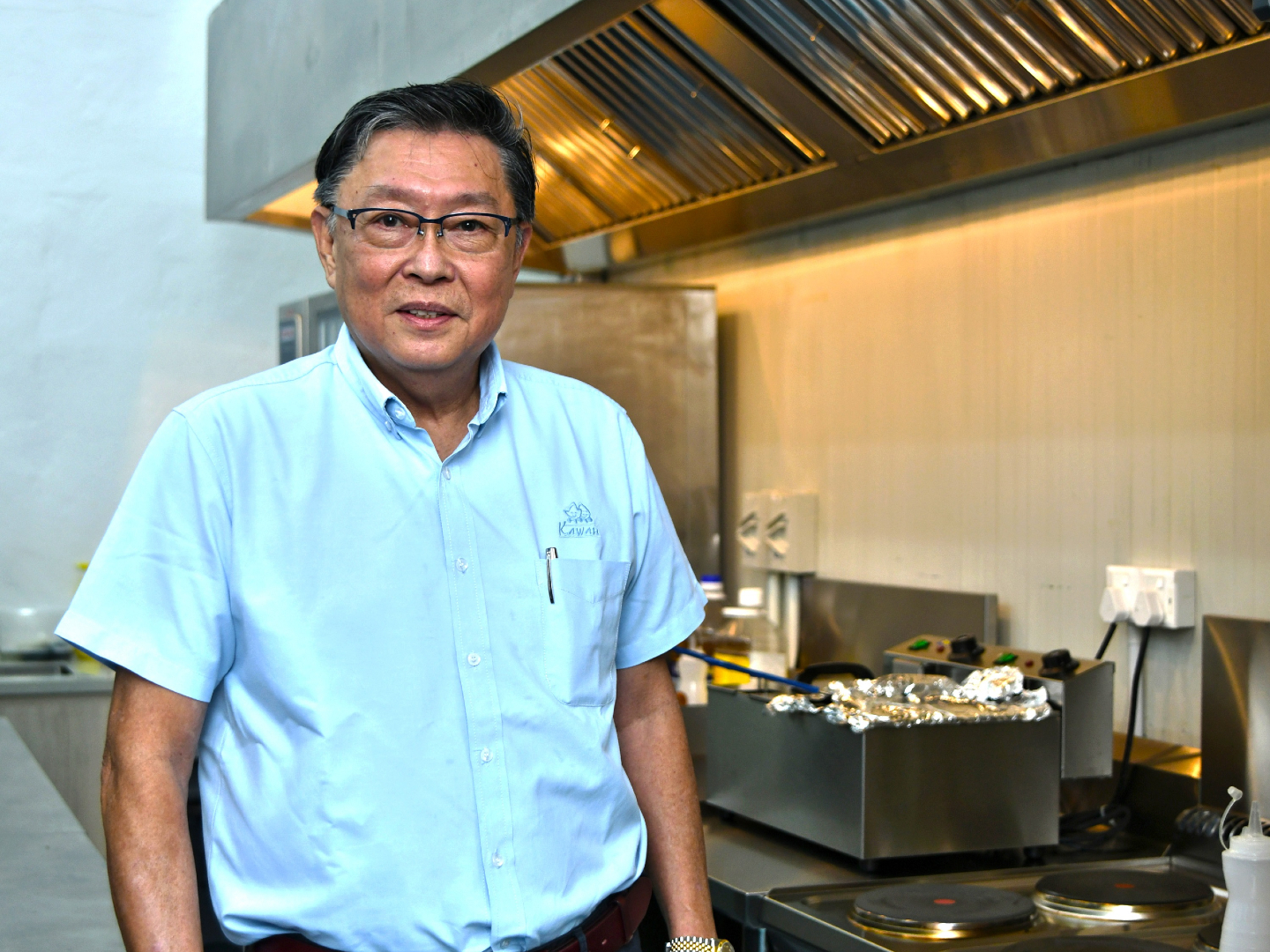
The 67-year-old shares how his love for a flaky flatbread now defines his legacy (Photo: Mohd Izuan Mohd Nazam/The Edge)
While flour, water and oil may not seem like the stuff of which dreams are made, the simplest of ingredients can come together in ingenious ways — filling tummies, creating livelihoods and changing entire destinies. This has certainly been the case for frozen food specialist Kawan Food Bhd, whose authentic, high-quality and affordable Asian delicacies — from parathas to puff pastries and pau — are sold worldwide. “We even sell our parathas in Paris,” executive chairman Gan Thiam Chai shares proudly.
Mission statements and core value diagrams convey important information about a company for potential investors. But as a stakeholder that is part of a larger community, Kawan’s true value is evidenced by the number of home freezers that contain its parathas, or the many homesick Asians in Western countries whose cravings it satisfies. After all, a food company at its core is about nourishing souls as much as fulfilling appetites.
This fact is not lost on Gan, but he is not the type to make a big deal out of it — typical of businessmen of his generation, the 67-year-old is more intent on getting on with it, if you will. He is a wonderful storyteller, so engaging and chatty I can barely get a word in edgewise, Gan remembers with stunning clarity his upbringing, the sacrifices his parents made for their children and the many people who have helped him along the way.
All I ask is for him to tell me about the business in his own words, and the full hour allocated for our interview simply flies by.
dji_0771_1.jpg
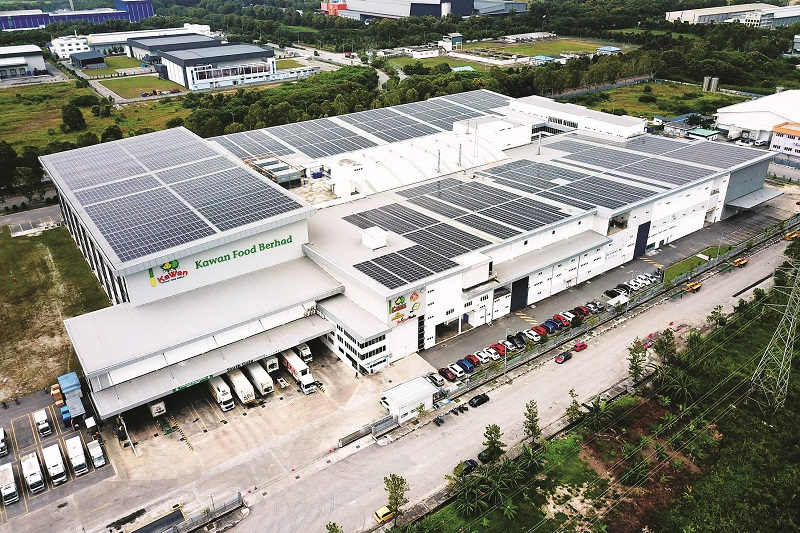
Kawan has come a long way from its first factory in Old Klang Road (now Jalan Klang Lama, Kuala Lumpur) and currently manages all its manufacturing out of a new, state-of-the-art factory in Pulau Indah, Klang. Covid-19 restrictions mean a temporary cessation of non-essential activities such as public visits, so we meet — pre-lockdown, naturally — at one of the company’s smaller facilities in Shah Alam.
One of the company’s directors, Gan Ka Bien, joins us for the interview, and only when I see the affectionate way in which she adjusts Gan’s jacket that I realise the familial connection: Ka Bien is Gan’s daughter, part of the third generation involved in the family business.
A good start
In a way, the first generation was Gan’s parents, who raised their brood by cooking and selling comfort food at wet markets and construction sites. Originally from Seremban, they moved to KL to work in latex factories which, in the 1960s, had started to wane. Quickly, the couple pivoted to food. “To bring up a big family, the financial burden was big as well,” he begins. “My mother was a self-taught cook and my father would pedal his trishaw to various locations to sell what she had prepared. All of us, in our younger days, also helped make kuih and pau for sale.”
The days were long and laborious for them all, but this sparked an industrious streak in Gan, the eldest son. Watching and helping his parents work from dawn to dusk sowed the seeds of his foray into food and entrepreneurship. Interestingly, this journey started when he was in school where he peddled nasi lemak packets, which sold very well as they were far superior to the canteen’s offerings. Eventually, he got some friends — “agents” in various classes — to help him with the growing number of orders, and they would be remunerated by way of extra sambal in their nasi lemak packets.
The school authorities soon caught wind of this and the headmaster had to intervene. At his peak, Gan was making and selling 600 packets of nasi lemak each morning before school, and the canteen operator’s profits had fallen by 50%. “At that time, I learnt some good lessons about franchising and distribution,” he laughs.
“Here is another story. My friend’s family sold Nyonya kuih at what was then Thrifty’s Supermarket. And one day, when I was helping him, I met the manager. I told her that my mother made very good kuih bakul. My first delivery sold out the same day, and I found out because my friend had cycled to my house and said, ‘Everything finish already. Can you make some more?’ The manager was a Mrs Lim, and she was so helpful — I have never forgotten her.”
old_kg_factory.png
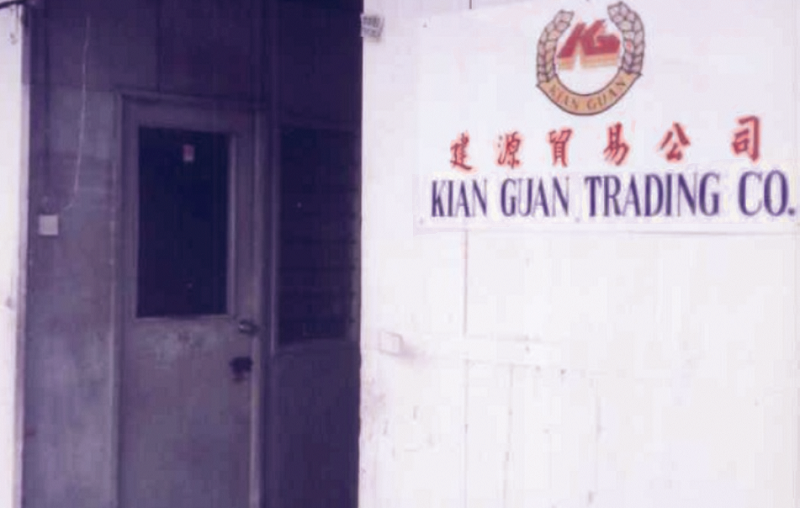
Straight out of secondary school, Gan started working as an electrician at German company Behn Meyer to ease his parents’ financial burden. The lack of tertiary qualifications placed stifling limitations on his growth within the company, and he knew that his path to success would lie in striking out on his own. Food was the business he knew best, so he started out making popiah skin for sale. This may seem unusual, but it was a clever choice as it was a simple product with extremely accessible ingredients: flour, water and oil.
In 1976, what we know today as Kawan Food was born as Kian Guan Trading, supplying traditional pastry products to local grocers and supermarkets. Kian Guan was a childhood nickname of Gan’s.
“I was very clear about what I wanted to do. As kids, we would all split up to sell pau like agents, and my brother saw a very successful popiah stall near Stadium Merdeka — that was how I got the idea. Popiah skin was something I had the ingredients for and it did not require a lot of capital, so that was how we started. We worked very long hours, but we felt very content as we enjoyed what we did,” he recalls. “In one month, I made more than my full year’s salary at my previous company.”
Within a few years, Gan was able to invest in machinery that would allow him to further grow the business and increase its capacity. During this time, he married and his wife joined him in the business, covering double shifts to expand as fast as possible.
The recession of the mid-1980s was a challenging time for him as supermarkets could not pay for their consignments, which pushed Gan to consider expanding his business overseas. He realised then that he could not rely entirely on local demand if he wanted to stay afloat, let alone grow. At this time, Kian Guan Trading became Kawan Food.
“As I started spending more time in the supermarkets, I realised that 90% of my customers were not Chinese — in fact, so many Malay customers bought the popiah pastry to make spring rolls; Indians bought it for samosa! I felt that I needed a name that was more memorable. Kawan sounded nice, a good meaning in Bahasa Malaysia, and the characters in Mandarin look like two leaves — it was green, and also environmentally and consumer friendly. At that time, I was already planning for future products to include frozen vegetables and vegetarian food, so the name made a lot of sense.”
paratha_family_photo.jpg
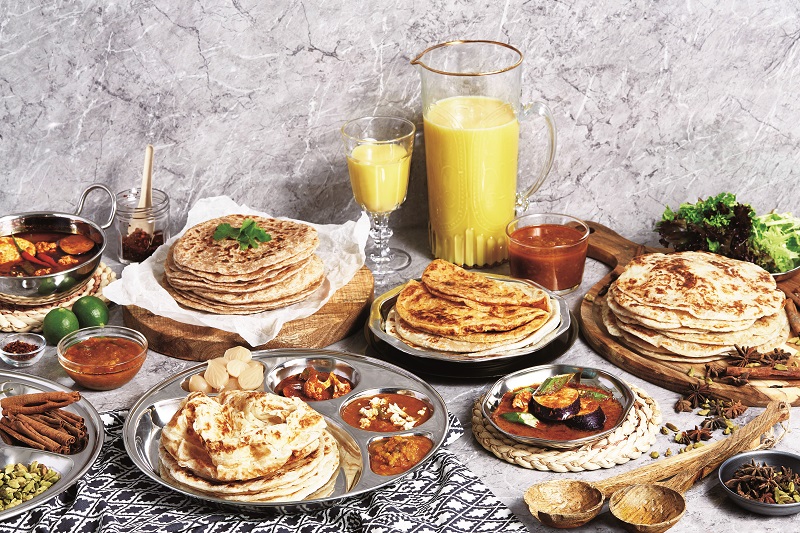
Gradually, it was Kawan’s parathas that made the brand a household name. The product category was inspired by Gan’s desire to provide overseas markets with a taste of a truly well-loved Malaysian treat — roti canai. “I wanted to export roti canai but after more research, I noticed that the product is better known as paratha everywhere else in the world — only in Malaysia is it known as roti canai. I sought help from the mamak guys who made roti canai at my favourite shops, froze it and sent it to the UK.”
Ka Bien remembers multiple trips to the neighbourhood mamak shops with her sisters, trying a variety of roti canai until her father perfected the recipe for mass manufacturing.
Gan would plough back the profits into future-proofing the business as much as possible, investing in the best available automation technology — some of which are unique to the company, till today — to ramp up production of his parathas. Incidentally, his proprietary roti paratha automation process is the first in the world. “Not many people know that I created this process. These days, our competitors are using our first-generation machinery while we have moved on to the fourth generation,” he says.
At present, the local market accounts for 43.7% of Kawan’s total sales, with the remaining 56.3% from overseas demand — the US, Canada, the UK, the Middle East and France, especially. “We sell to a lot of Asian grocers. Those who miss a taste of home are huge fans. We sell it under a different product name but in essence, it is the same — a flaky, flavourful flatbread that simply doesn’t exist in those parts of the world,” Ka Bien explains.
At the turn of the century, Gan and his team established a new manufacturing facility in Shah Alam and would go on to win multiple awards for its exceptional manufacturing standards and business practices. This included the Enterprise 50 Award by SMIDEC and Accenture, the Malaysian Honesty Enterprise Keris Award by the Entrepreneur Development Association of Malaysia, and the International Award For Best Performance by the UK-based Council of International Awards.
Kawan listed on the Second Board of Bursa Malaysia in 2005, and in the following year, opened a 440,000 sq ft factory in Nantong, China, to cater for its growing global demand. By 2011, the company’s sales revenue had crossed the RM100 million mark, and in 2014, it was able to commence the construction of its Pulau Indah manufacturing plant.
This was no longer a small family business — Gan had successfully gone from selling contraband nasi lemak packets in school and popiah skin under Kian Guan Trading to running a hugely successful international food company with a large variety of frozen products in its inventory.
Taking things in his stride
Gan does not indicate what his plans for the company had been for 2020 and beyond before the outbreak of Covid-19, but he and his team appear to have adapted well to the unusual circumstances of operating under the Movement Control Order and its various iterations. Kawan is one of the few companies that have done well in the past year, with pandemic-driven market trends working in its favour.
As its frozen foods are meant primarily for home dining — with convenient, easy-to-prepare products and frozen, ready meals — they have proven popular with consumers who have had to stay home to stay safe. Apart from being sold in supermarkets and grocers, Kawan’s offerings can be purchased via its e-commerce channel, which has seen a huge uptick in sales during the MCO.
kawan_food_1.jpg
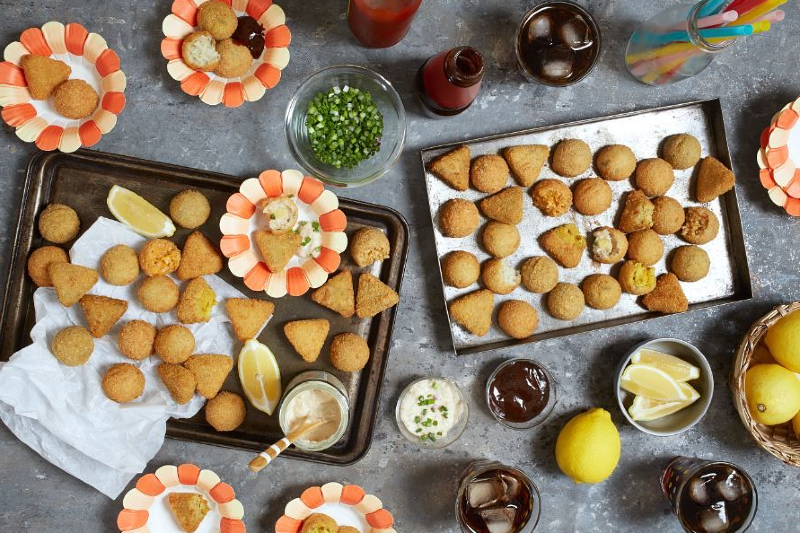
And honestly, Kawan really does stock something for all tastes and inclinations. The full portfolio includes a multitude of parathas and chapathis, frozen vegetables, finger foods, plant-based food products, Western-style pastry sheets, sweet and savoury pau and desserts sold under five brands — Kawan, KG Pastry, Passion Bake, Veat and Aman.
Although I have always been a fan of Kawan’s products, in the past year, I have become additionally well versed in the entire range of its offerings. A family favourite is the roti Malabar, but my health-conscious parents enjoy the low-GI chapathis on days when they do not feel like cooking. I’m not one to wait for the winter solstice festival for a tang yuan treat, so I always have stock of Kawan’s black sesame glutinous rice balls in my freezer, and its pastry sheets to whip up last-minute teatime treats.
An essential service provider, Kawan has continued to operate its manufacturing facilities for most of the year within the limit of a 50% workforce set during MCO, while observing social distancing and with other pandemic prevention measures in place. Behind the scenes, the company’s leadership team had streamlined its production and product range to protect margins while maintaining supply and availability.
However, the company has quickly restored its product range as conditions stabilise to continue providing a broad choice for consumers, leveraging its vast insights in consumer behaviours to guide all decision-making processes.
Timing has been on the company’s side as many important changes were made in 2019, which have prepared it well for the pandemic. Most notable is the opening of its Klang manufacturing plant, which houses the country’s largest cold room warehouse that uses a sophisticated storage and retrieval system. It is also spacious enough to ensure staff can work comfortably while complying with physical distancing requirements.
During the design stage, Gan had been firm that the new facility should be as sustainable as possible by using resources efficiently and effectively. Blueprints have now become a bricks-and-mortar dream come true — a transparent roof saves electricity as less artificial light is needed during the day, while rainwater is harvested for use in general sanitisation. The company is also looking at ways to leverage clean energy sources, and has invested in solar power technology to lower energy costs and reduce its carbon footprint.
Kawan had invested in an upgraded enterprise resource planning system, which has helped its staff work from home more efficiently. The data analytics provided by the ERP system has helped the company better navigate the challenges of the pandemic, providing timely and relevant data to ensure smooth operations even when its managers cannot be on the premises due to Covid-19 restrictions.
With output assured and employees’ needs seen to, Kawan has also been able to provide valuable assistance to marginalised communities affected by the lockdowns by making contributions to local food banks, soup kitchens and charity organisations, which provide nourishment to those in need during this time. Apart from that, it has made donations to support free sanitisation in schools and care homes to help curb the spread of the virus.
Now in their late sixties, Gan and his wife Kwan Sok Kay — who is also a company director — have started talking about stepping back from Kawan, leaving their children to manage the business. “They understand technology so much better. I only know we need it, but they know more about how it works,” he grins. “We are going to pass this business on to the next generation, and they will have their own ideas — they are more knowledgeable. We can only use our experience to guide them.”
That said, Ka Bien does not foresee her father completely disengaging just yet. “He loves cooking and creating new dishes, he loves eating with the family. Food is his passion and his hobby, so Kawan is a good playground for him,” she quips. At present, Gan remains actively involved with Kawan’s team of food scientists and chefs in creating new products and coming up with fresh ideas on how to enjoy those already on sale.
“The culture behind Kawan is to encourage everyone to innovate and be creative. We have a large range of products now, but we still feel there is space to grow by creating new, unique foods,” Gan muses.
“I use my home kitchen as a testing ground for recipes, and I share it with my R&D team so they can see if it is possible to introduce them to the market. No matter what, if it’s a product that we don’t like, it won’t go out to the market. When Ka Bien was younger, I would put all the new creations on the table and see what the children would eat — my friends would not be honest as they would want to be nice, so they may not tell me the whole story. But children would not lie! Now, my grandchildren do the food testing for me.”
Research is ongoing but Gan says new products will likely be vegetarian and plant-based owing to the rapid growth of this particular segment. He is also hoping to create more ethnic and fusion foods that represent Malaysia’s wide range of cuisines. But some products will always be on the menu, he promises — including his all-time favourite, the paratha.
“I thought I would get tired of it after a month, but I have it a few times a week at home — even today,” he laughs. “When I first created the paratha, I thought that in three years, I would have to retire it as customers would be bored of it. But it has remained very popular.”
Gan’s parents have both passed away, but not before witnessing how successful their son had become and how he had parlayed their simple food business into a multimillion-ringgit enterprise. Kawan’s pillow-soft pau, much like the ones they once made, were a favourite, Gan recalls, and they enjoyed the occasional paratha too, just like him.
Flour, water and oil. The stuff of miracles, one might say.
This article first appeared on Jul 5, 2021 in The Edge Malaysia.


